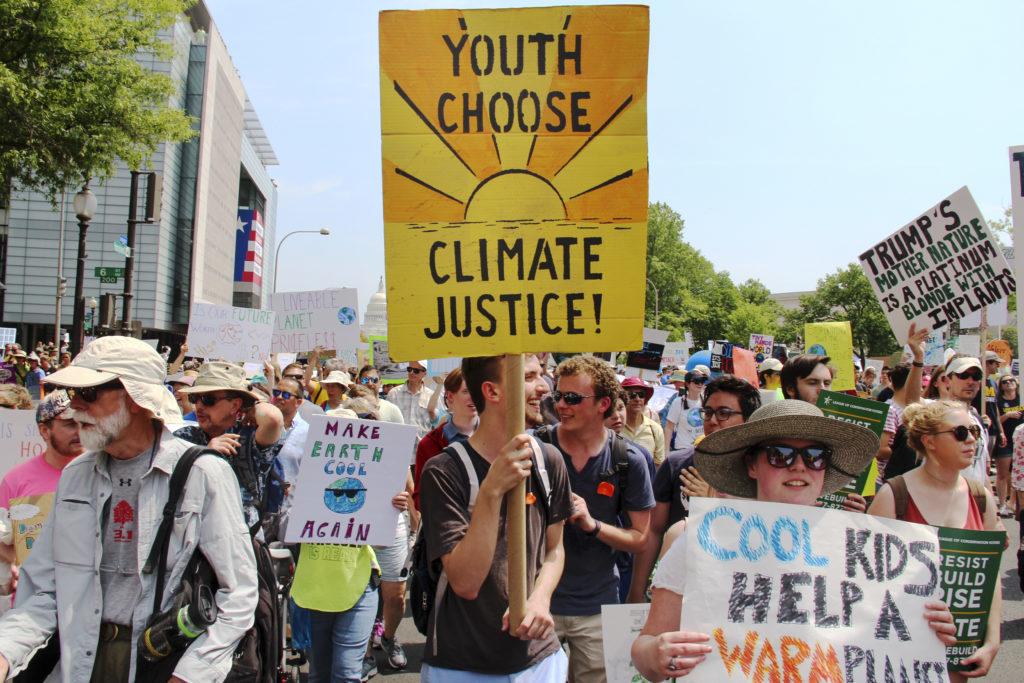Environmental student organizations braved 90-degree heat and joined nearly 200,000 other protesters in downtown D.C. Saturday for the People’s Climate March.
The march was held on President Donald Trump’s 100th day in office to highlight the impact of climate change and how Trump administration decisions – like cutting funding for climate research and rolling back regulations – are harming the environment.
Both Green GW and Fossil Free GW led a group of around 40 students to the demonstration and marched together through the streets of the District.
“We want to stand in solidarity with all the communities affected by climate change,” Eric Teller, a coordinator for Fossil Free GW, said. “We’re showing that students are going to stand up for climate justice.”
Demonstrators waved signs with phrases like “the oceans are rising and so are we” and “there is no plan(et) B.” Others chanted “we will not go away, welcome to your 100th day” and “keep it in the soil, we can’t drink oil.”
Izzy Moody, vice president of Green GW and co-president of the GroW Garden, said it was important for GW students in particular to participate in these kinds of events because of how close they are to campus.
“I think that living in D.C. means we have a responsibility to show up for these events,” she said. “We’re hopeful that students from all over campus feel like they can show up for climate change.”
The march began near the Capitol Building, with participants gathering in seven different sub-sections based on how they will feel the impact of climate change.
Students gathered in the “Guardians of the Future” subsection with parents, children and teens. Protesters then headed down Pennsylvania Avenue toward the White House around 1 p.m. before finally ending the march in front of the Washington Monument.
“I like the vibe of this because it seems like a celebration and it’s about coming together,” Logan Malik, a leader of Fossil Free GW and chairman of the student life committee in the Student Association Senate, said. “Students participating is so important and so is how this march combines social justice with climate change.”
After the march, protestors gathered on the National Mall to hear from prominent climate change activists. Among the speakers were activists who had camped out in Standing Rock, N.D. to protest the Dakota Access Pipeline.
“You feel all alone on these issues sometimes, but when you see a crowd like this it gives you hope,” one activist said.
Speakers at the protest said they hoped that such a large gathering in opposition to climate change would inspire other people and government officials to make better decisions for the environment.
Dorthea Thomas, a member of the Michigan chapter of the Sierra Club, said it was important for her to protest to create a better environment for future generations.
“Now that I am an expecting mother I want to bring my daughter into this world knowing that she’ll have a clean and safer environment for generations to come,” she said. “The people and the planet must always come before profits and pollutants.”





